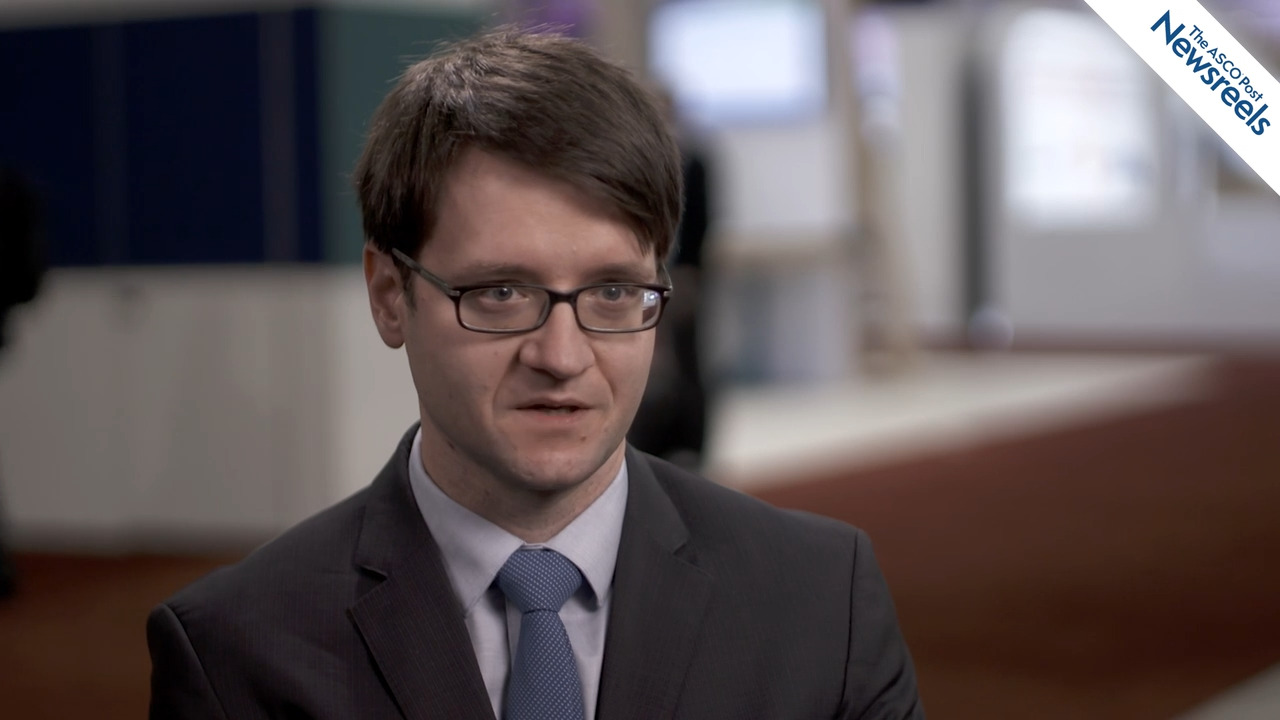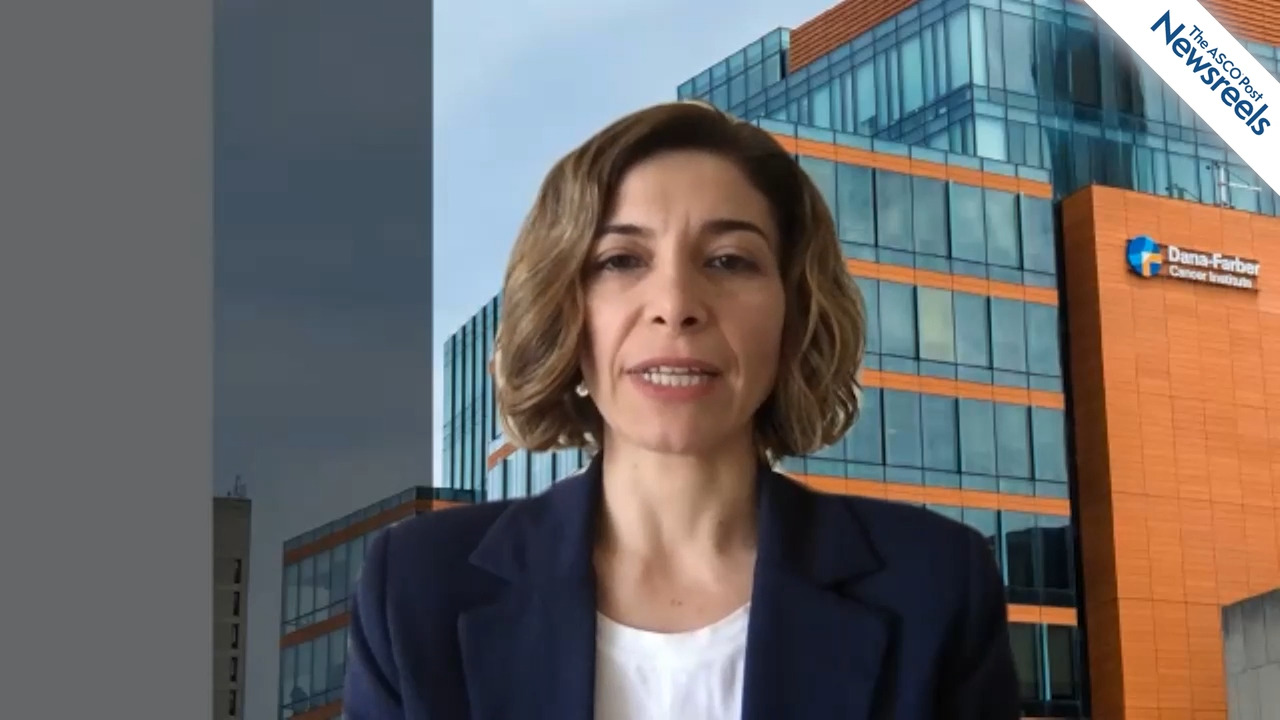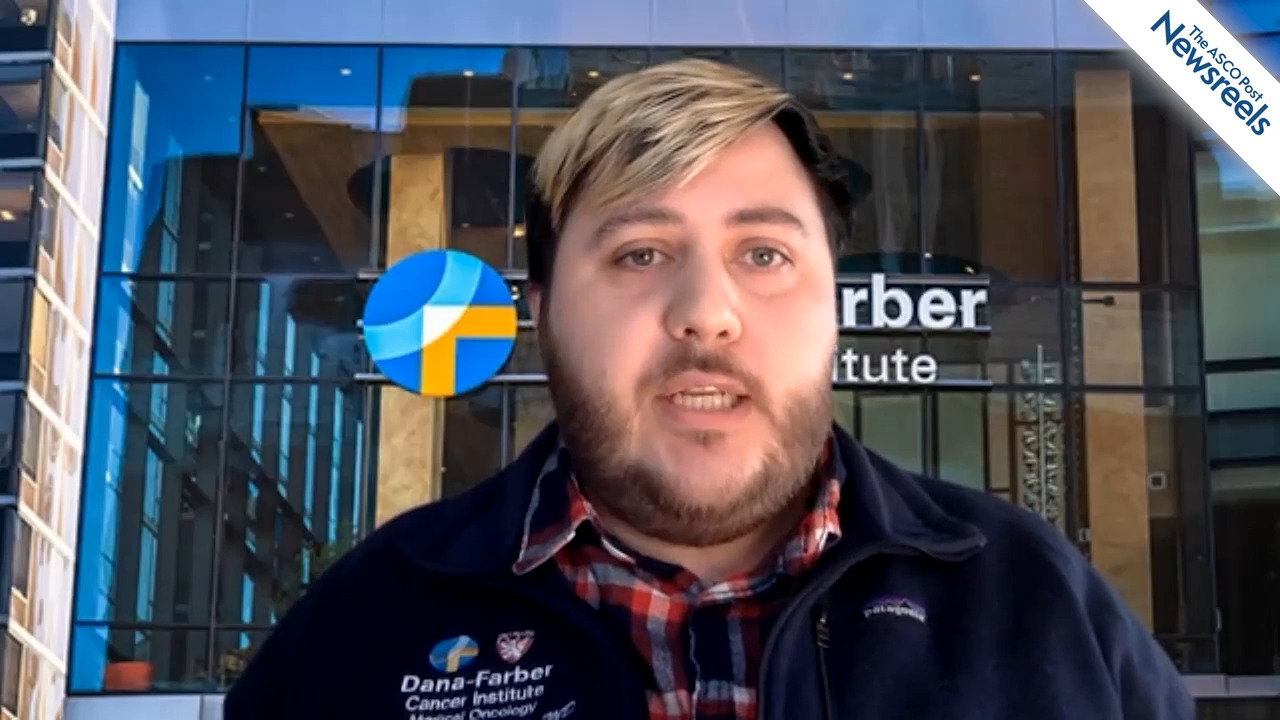Carsten Utoft Niemann, MD, PhD, on CLL: Time-Limited Venetoclax and Ibrutinib for Patients With Relapsed or Refractory Disease
2021 ASH Annual Meeting & Exposition
Carsten Utoft Niemann, MD, PhD, of Copenhagen University Hospital, discusses a primary analysis of the phase II Vision HO141 trial, which showed the feasibility of stopping and restarting ibrutinib and venetoclax in patients with relapsed or refractory chronic lymphocytic leukemia who have undetectable measurable residual disease. A favorable benefit-risk profile was demonstrated, with no new safety signals (Abstract 69).
The ASCO Post Staff
Andrew Matthews, MD, of the Abramson Cancer Center, University of Pennsylvania, discusses findings from a retrospective study at an academic institution, which showed there was no statistically significant difference in overall survival between induction with CPX-351 and venetoclax/azacitidine for adults with acute myeloid leukemia. Prospective studies to confirm similar effectiveness with careful attention to side effects, quality of life, and impact on transplant outcomes may help clinicians decide between these therapies (Abstract 795).
The ASCO Post Staff
Tycel Phillips, MD, of the Rogel Cancer Center, University of Michigan, discusses phase II findings from the CITADEL-204 study of parsaclisib, a next-generation inhibitor of phosphatidylinositol 3-kinase. The agent, used as a monotherapy, appeared to benefit patients with relapsed or refractory marginal zone lymphoma who had a rapid and durable clinical response (Abstract 44).
The ASCO Post Staff
Anil Aktas-Samur, PhD, of Dana-Farber Cancer Institute, discusses study findings on the genomic characterization of non-progressor smoldering multiple myeloma, results that may provide a molecular definition of the disease as well as its risk-driving features. Combining this low-risk model with current high-risk models may possibly improve clinical trials for patients with this early precursor to myeloma (Abstract 545).
The ASCO Post Staff
Leslie S. Kean, MD, PhD, of Dana-Farber/Boston Children's Cancer and Blood Disorders Center, discusses findings from her analysis of the International Blood and Marrow Transplant Research Database, which led to the recent FDA approval of abatacept for the prevention of acute graft-vs-host disease (GVHD) in adult and pediatric patients. The data suggest improved overall survival with the immunosuppressant abatacept in combination with a calcineurin inhibitor and methotrexate following 7/8 HLA–matched unrelated allogeneic hematopoietic stem cell transplantation (Abstract 3912).
The ASCO Post Staff
Romanos Sklavenitis-Pistofidis, MD, of Dana-Farber Cancer Institute, discusses study findings on a next generation of clinical assays to assess both tumor biology and immune state, as well as common clinical biomarkers in the marrow or blood. These biomarkers may accurately predict which patients with smoldering multiple myeloma might benefit from early treatment, monitor response to immunotherapy, and improve patient outcomes (Abstract 330).





